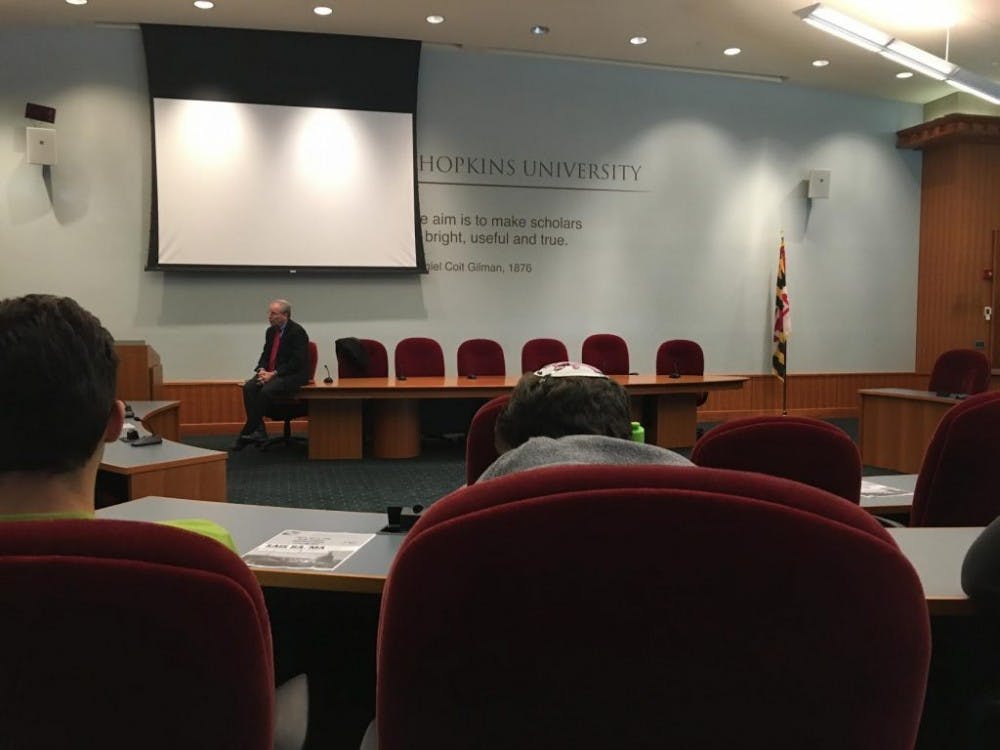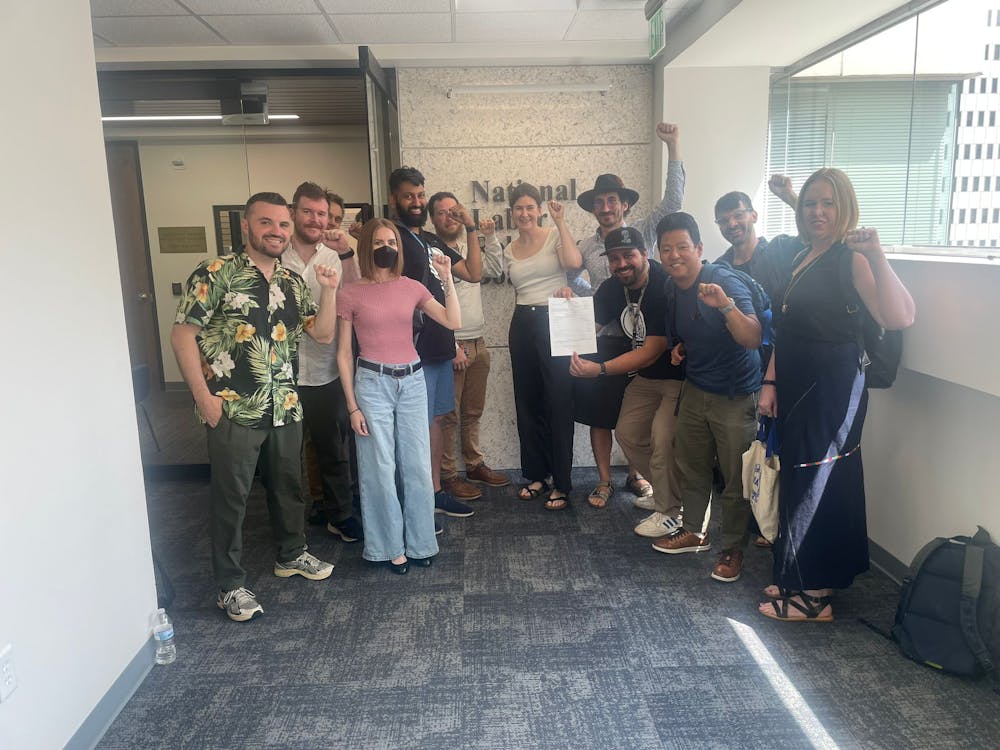Former U.S. Ambassador to Syria and Hopkins alumnus Robert Ford lectured on the impact of climate change on stability in the Middle East last Friday, Oct. 28. He also explored U.S. foreign policy in Syria and shared his experience working in high levels of government.
Ford has held posts in Algeria, Iraq and Bahrain. He has received several awards and is currently a senior fellow at both the Middle East Institute in Washington, D.C. and Yale University’s Jackson Institute for Global Affairs.
Ford began his lecture by stressing the fact that climate change is a new area of focus in foreign policy.
“In all of the time I spent in different embassies in the Department of State, I don’t think we ever had a single conversation about climate change and its impact on the Middle East and North Africa,” he said.
It was not until leaving his post as ambassador that Ford became interested in the subject.
“The more I read, the more sobered I became at the impact climate change is going to have on an already unstable part of the world,” Ford said. “The instability in the Middle East and North Africa has direct impacts on us.”
He pointed out that the number of American troops in Iraq and Syria have increased in the past year, indicating that the U.S. military is still heavily involved in Middle Eastern conflicts. He then tied this conflict and instability to the repercussions of climate change.
“In places like Syria, the amount of arable land could well drop by more than half, and agriculture could drop by half,” Ford said.
Ford listed several major challenges that restrain action on climate change.
“In general, in the Middle East and North Africa, there isn’t the same kind of freedom that we have in the U.S. for non-government organizations to form and for them to operate,” he said. “Severe restrictions on NGOs prevent them from lobbying the government.”
Ford also addressed the lack of credibility in Arab governments. He cited the tendency for water to be piped away from rural areas and into cities.
Additionally, the excessive water consumption by larger, wealthier farms leaves poorer farmers without access. This trend contributes to instability in the region..
Ford emphasized that there is a shifting focus in international politics to address the effects of climate change.
“As the next generation of American diplomats looks at the Middle East... this is going to be more on the agenda,” Ford said. “For those of you that are interested in international relations and international politics, this is going to be something that you’re going to be dealing with in a way that my generation never did.”
In the question-and-answer session following the lecture, Ford expressed doubt that the U.S. alone could do much to solve the problem of climate change but gave suggestions for solutions.
“I don’t think we’re going to have a lot of credibility with developing countries... until we ourselves are going to be seen physically to be doing these things,” he said. “I think therefore what we can do, working on the margins, is to help environmental scientists [in the Middle East] establish [credibility], and at the same time, push for greater boundaries of expression and speech so the NGOs can play the role that they play in other countries.”
Ford also spoke about the current situation in Syria. He admitted that although he never pushed for it, early U.S. intervention would likely have made an impact.
“Had the U.S. been more involved in 2011 and 2012, it is possible but not guaranteed that there would be less extremism... that is to say that al-Qaeda and the Islamic state would not be as strong in Syria today than they are,” he said.
Ford also commented on today’s prominent political figures, such as current presidential candidate Hillary Clinton. He described her as a smart, forward-thinking analyst.
“I think Clinton’s pretty calculating,” he said. “If anything, more calculating than is for her own good, so I think she’ll probably be a pretty effective president.”
Students were also curious as to what Syrian president Bashar al-Assad is like in person.
“Assad himself, he can be charming, and he’s not particularly arrogant,” Ford said. “But... he lies. And not only does he lie, but he knows he’s lying, and he knows you know he’s lying, but he does it anyway. I actually don’t respect that.”
One student asked Ford why he had chosen to get involved in government service.
“I myself took a great sense of satisfaction that I was trying to do public good every day,” Ford said. “It wasn’t about getting myself rich, it was actually about working on things much, much bigger than me.”
He differentiated working in the government from working in similar international careers such as working in non-governmental organizations or media companies.
“In government you actually make the decisions or you work for the people who make the decisions. You have more influence,” Ford said. “But it has its own costs, which include loyalty to the organization. Once the decision is made, you have to go out into the public domain and you can’t be bad-mouthing the policy, you can’t be bad-mouthing the organization.”
Ford also had plenty of advice for those interested in a career in diplomacy, stressing the importance of being fluent in a foreign language and being a skilled writer.
Overall, students were impressed with Ford’s presentation. Sophomore Alexandra Marksteiner applauded Ford for discussing the shift in focus from security threats to environmental threats.
“I think it’s a turn when a U.S. government official starts talking about the issue of climate change, and stops focusing on just security-related issues,” Marksteiner said. “I thought it was a very much appreciated change in tone.”
Marksteiner did, however, point out Ford’s tendency to avoid difficult questions.
“I think that he does swerve [around] questions a bit like most politicians do. I think that habit is very difficult to break,” she said. “So I would have wanted him to be more explicit in his opinions.”
Freshman Victoria Li also enjoyed Ford’s lecture.
“I actually had lunch with him earlier, and he was very fascinating in terms of his personal accounts with top political officials, and it was a really close-up view of what it means to be an ambassador,” she said. “I think that the fact that he focused on climate change, and all of his personal accounts of him with Hillary Clinton, with al-Assad... I think that’s valuable and indispensable.”
Both students agreed that the talk had widened their perspectives on the subject of climate change.
“I don’t think I am or was previously informed enough to make an educated opinion,” Li said. “But it’s definitely brought to my attention the urgency and the prominence of these issues.”





